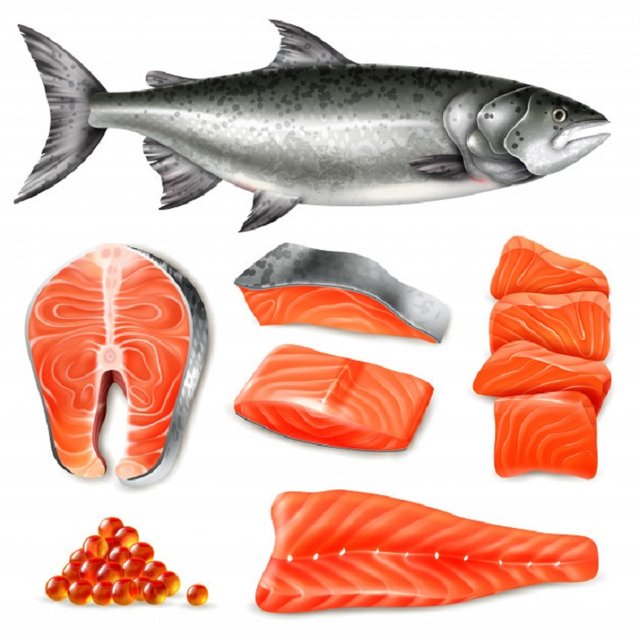Salmon fish
Salmon are anadromous fish, meaning they live in both freshwater and saltwater during their lifecycle. They are widely distributed in the northern hemisphere and are highly valued for their rich taste, high protein content, and omega-3 fatty acids.
Key Facts About Salmon:
1. Species: Common types include Atlantic salmon (Salmo salar) and various species of Pacific salmon like Chinook, Coho, Sockeye, Pink, and Chum.
2. Lifecycle: Salmon hatch in freshwater rivers, migrate to the ocean to grow, and return to their natal rivers to spawn. After spawning, most species die.
3. Diet: Salmon primarily eat plankton, small crustaceans, and smaller fish.
4. Color: Their pink or red flesh comes from carotenoids in their diet, particularly from krill and shrimp.
5. Cultural and Economic Importance: They are a staple in diets worldwide, a vital part of many indigenous cultures, and a significant component of the fishing industry.
Would you like more information about cooking, farming, or their biology?
